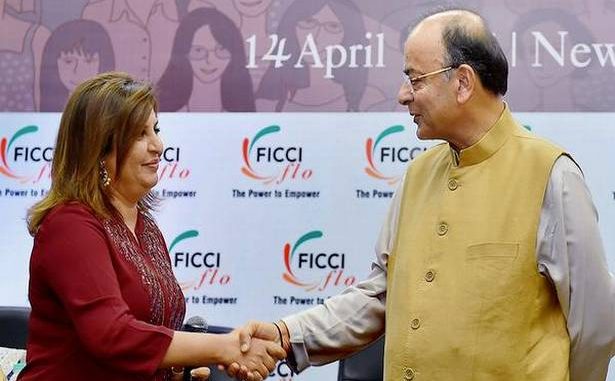
Conceding that India is still lagging behind on issues of gender parity, Union Finance, Defence and Corporate Affairs Minister Arun Jaitley said on Friday that the country’s current willingness to embrace reforms and change mindsets offers an opportunity to correct the picture in the coming years.
Traditional burden
“In a society which conventionally was loaded against [gender] parity and equality, there has been a conscious attempt to cover up the lags which we must honestly confess still exist,” Mr. Jaitley said, after unveiling a Gender Parity Index formulated by the FICCI Ladies’ Organisation to assess where organisations stand in terms of creating gender-neutral opportunities at the workplace.
“When you speak in terms of [gender] parity… conceptually, we provided for parity [in the Constitution]. We also provided for some affirmative action in order to improve upon an endeavour to reach that level of equality. But there were always challenges,” he pointed out.
Beyond tokenism
Stressing that citing isolated examples of women achievers as role models, as has been done for decades, amounted to ‘tokenism’, the Minister said such changes need to become a ‘normal pattern.’ “If you want the real effect of these changes to be widespread, any society has to rise above tokenism,” he said, stressing that he has seen a healthy pattern emerge in university campuses across the country.
“Almost, without an exception, at most colleges that I go to – an overwhelmingly large number of recipients for medals of excellence are for women students. When it starts at the level of universities, it obviously should reflect in the (economy),” the minister said.
Comparing the ‘fits and starts’ approach to reforms in India even after the liberalisation of the economy in 1991 to the present, the Finance Minister said India is now willing to reform to meet the desires of an aspirational society that wants change.
“Some of the ideas that we thought were extremely hard to plan and execute now get implemented with a reasonable amount of ease and comfort.”One of the reasons is – the opinion making class in India is expanding. It’s not merely those who have been privileged enough or benefited from the process, those who aspire I think is a powerful layer of society – the aspirational class,” he said.
“Therefore, if you look down the tunnel as to where we will be 20 years of now, and add on these stray ideas, the country is willing to change, the resistance to change that existed in the past is gone, the nature of the economy is changing, social attitudes are going to change, the (gender) parity situation is going to change,” Mr Jaitley concluded.
Source: The Hindu

Leave a Reply